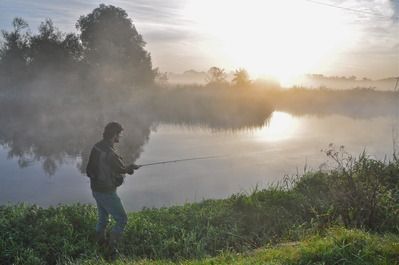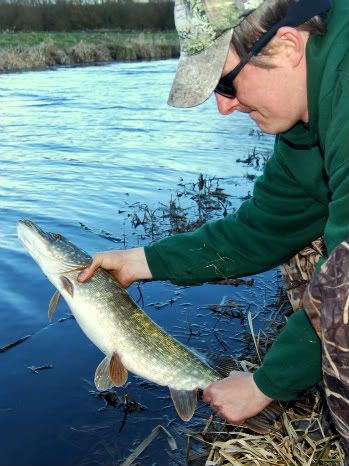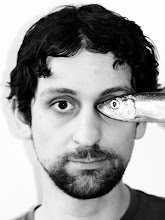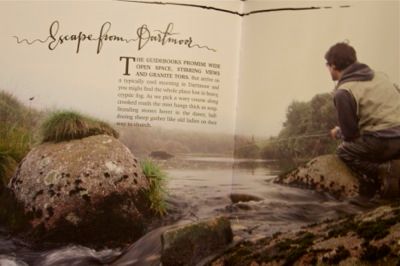
The last few days and weeks (or make that months) have been "interesting" to put it mildly. Not least a lengthy delay due to the increased security with recent turmoil in Europe. I'd like to thank everyone who ordered early for their patience- as you can imagine, I was tearing my hair out. The printing of the book is a story in itself. It was printed by Tallinn Book Printers, Estonia, who are honest and excellent people to deal with. My last book Tangles with Pikewas also printed by them, via a company in London who dealt with admin and puling a few strands together. But I was later to learn that the Estonians were never paid! Hence I wanted to go directly to them this time and make sure they got my business and full payment (and show them that not all Brits are dishonest!). Amazingly, they were trusting enough to deliver the books without demanding an advance, on a pay on delivery basis. Good karma, I felt, and the finished item is fantastic quality. It just took an age to travel across Europe.
But this is merely the end of a long and yes, crooked, journey. The idea of the book had been long in the making. Regular readers may already know of some my frustrations as a fishing writer. Even pieces that had appeared before were often only a shadow of the original, once they were clipped and squeezed to short format. "A War of Worms" (pictured below) is a classic example. While I wanted to describe various highs, lows and downright hooky bits from a long, wet winter, the article that went to press was chopped to less than half length (rather like a worm?) and retitled something like "CATCH YOUR BIGGEST PERCH EVER THIS WEEKEND!" in a classic bit of editorial hack'n'slash.
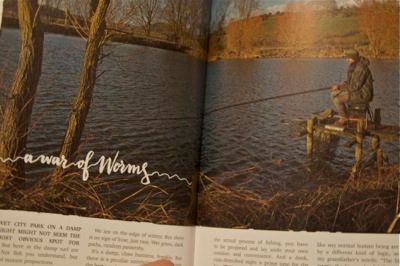
But the beauty of independent self-publishing is that you have nobody to say "you can't do/say/publish that." This digital age is a battle, quite simply, to cut through the noise and get your message out there. But it is also empowering because you can blaze your own trail without having to compromise, or follow someone else's agenda or the usual formula. A great freedom, because with this book I wanted to be daring and make it something original and totally different in its design and feel. I wanted to tell the hidden story of fishing with all the grubby, interesting bits left in.
The artwork and design would be critical, but I had a strong gut feeling that Sheffield artist Lord Bunn would be perfect. His standard fare is anything but standard, with signs, murals and even band artwork very much his usual thing rather than fishing (I had met him through encounters with friends of his, the excellent post-rock band 65 Days of Static, but that's another story).
It took a lot of inspiration and perspiration from both of us to get things just right, especially with the cover. Creative types grow through being outside their comfort zone though- and I just loved his take on the different fish species. He gave each its own personality and the detail blew me away (I especially love the eel, hiding in the beer bottle).
As for the internal illustrations… you'll just have to get the book! There are lots of great black ink pieces, including flies, worms, hooks and even the odd stray fag butt. He also produced the most beautiful ink lettering, to provide chapter titles that were bang on. Each is a continuous, crooked line in itself, perfectly suited to my own slightly anarchic sensibilities.
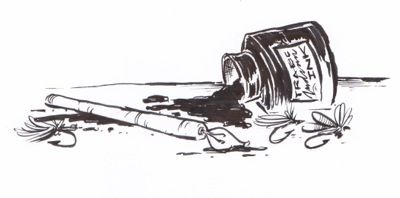
As for the writing itself, it took several months and was laden with coffee and expletives. There are several completely new and exclusive pieces in the book and others I had been saving up, while I also revisited other favourites and partially published stories, sharpening them up and fleshing out the juicy bits to hold nothing back. Compared to this blog and many previous articles, it's like looking at a finished gallery rather than a sketchbook.
The actual writing is the fun part, but the process of hammering it into a finished book can be painful. Garrett Fallon was my right hand man to provide design and layout. Above all else, we wanted to give the traditional angling book a kick up the arse and produce something edgier, funnier and more entertaining. But his editorial skills were also hugely valuable, because as the author you do reach a point where you are so steeped (and jaded) with your own work it is difficult to see the wood from the trees.
Several nasty little dramas were negotiated as it was proof read and refined. But you also reach the stage where you have to stop tinkering and correcting, and leave it the hell alone. Because this way madness lies and, after a certain point, you can end up making it worse.
With the introduction, however, I just couldn't feel satisfied. It was pedestrian and lacking in bollocks. Then, at the eleventh hour, it came together. I was up late one night with the flu and suddenly the right words came flooding out- or so I thought. Bloody predictive text almost put paid to that! I had written about the essence of the book, the nutters and strange places I had enjoyed the most. But modern autocorrect doesn't like angling terms. I hate autocorrect. It is lethal. It wants to change "tiddler bashing" to "toddler bashing" and my website address (dgfishing.co.uk) to "dogfighting uk" (I shudder to think what such a website would be like). But the worst was yet to come. My line about "the camaraderie of the bankside" was automatically changed to "the camaraderie of the backside!" A very different message- and typing this blog the same has just happened.
Jesus Christ on a bike, this was a disaster, because the files had already been submitted! I tried to solicit a little sympathy from family and friends but mostly just got howls of laughter. My line about the brotherhood of fishing had been changed to some sort of statement about fishermen bumming each other (whatever floats your boat I guess?). But mercifully, after frantically trying to contact Tallinn, we managed to correct this line before they pressed print. Some of you may of course be sadistically wishing it was left in, but I am relieved in the extreme. I had had visions of having to hand-correct 2,000 books.
So perhaps you can understand my titanic sense of relief in the project even more now. The even longer road will now be selling the thing, to ensure I'm not permanently in debt after financing the project. With independent publishing you take all your own risks- but my aim is always to be read rather than make stacks of money (wishful thinking in the fishing world!). Too many angling books are hoofing great coffee table ornaments, aimed at collectors and sold for anything up to £40 or more a copy. Sure, some of them are truly lovely, but to my mind, this isn't affordable for most anglers so I wanted mine to be available for a tenner. The margins become smaller, but I want as many readers as possible to enjoy my work, not just a handful of book collectors. It's always nice to sell books, obviously, but I much prefer signing scruffy well-loved copies of my work at events, rather than pristine and unread editions, probably destined for Ebay in the year 2050. Dare I say it though, collectors could always buy one to use and abuse, and another to collect?
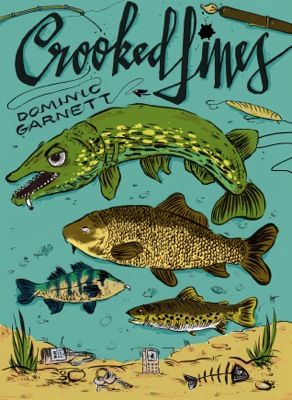
You can get the book directly from my website (CLICK HERE) or also as an E-book from Amazon UK for just £4.99 (CLICK HERE). You can also buy the real thing from Amazon, but please use my own site, because Amazon nick about two quid from every book sale. They also pay bugger all in UK taxes- but are a necessary evil I am afraid.
After months of work, I am now looking forward to actually going fishing again on a regular basis! If nothing else though, I'm getting savvier at making the most of small windows of opportunity these days. I had a fantastic canal session for perch on the fly recently, with a lovely fish of two pounds and six ounces to a new fly pattern (you can read more on the blog I currently produce for Turrall Flies- CLICK HERE).
Otherwise, my next stop will be the Tiverton Angling Club's Christmas match. I don't fish many contests these days, but this one is always a good day out and very well attended. Even the poorer pegs produce lots of bites from small roach- although I seem to have a knack of drawing right by the car park. Please let this be the year that I draw a flier! I'll let you know how I get on.

